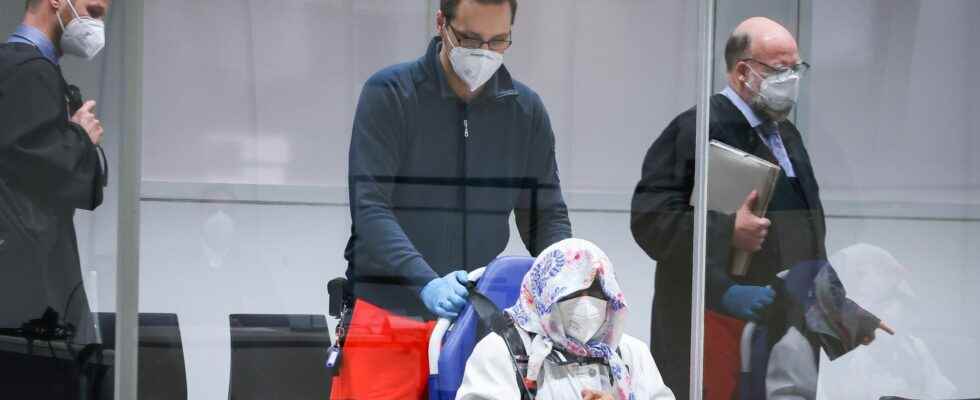The trial of the “secretary of Stutthof” will undoubtedly be one of the last in the history of the concentration camps, if not the last. At the central office of the judicial administration in Ludwigsburg, responsible for prosecuting Nazi crimes, there are still nine investigations in progress against those responsible for or accomplices in the Holocaust. A new trial, very long to prepare, therefore seems more than unlikely when the youngest of them is… 95 years old.
The conviction of Irmgard Furchner, which must be pronounced this Tuesday, December 20, is therefore very symbolic: it should mark the end of the proceedings against these “small cogs” of the Nazi terror system, essential to the proper functioning of the camps. “Without the help of these bureaucrats, the Holocaust would not have been possible,” recalls Andrea Riedle, director in Berlin of the Documentation Center on Nazi Terror.
What is the degree of complicity of Irmgard Furchner when she has no blood on her hands? Is it still useful to prosecute a 97-year-old lady who was only 18 at the time? So many questions that have punctuated this trial which is due to end on Tuesday in Itzehoe in Schleswig-Holstein. Accused of complicity in murder in 11,000 cases, the prosecutor requested two years in prison suspended because of her young age at the time of the facts by applying the criminal law for minors.
“She knew everything”
Sitting in front of her typewriter between 1944 and 1945 in the Stutthof concentration camp – near Danzig in Poland), she typed out the execution and deportation orders. Through her office window, she saw, smelled and heard everything that was going on in the camp: the screams, the summary executions, the smell of the crematory ovens, the corpses coming out of the barracks.
But Irmgard Furchner does not remember anything. Veiled, hidden by an FPP2 mask and by large sunglasses, she remained seated in her wheelchair without saying anything during this trial which lasted more than a year. She has always denied her responsibility by ensuring that she had “good conscience”, explained her lawyers (they pleaded acquittal).
“It was impossible to sit in the Kommandantur and ignore what was happening,” said Marcin Owsinnski, one of the managers of the Stutthof memorial where 65,000 people were murdered, shot, gassed, hanged, beaten, burned or poisoned. His complicity is beyond doubt, said the Attorney General. She was aware of everything, quite the contrary, and “down to the smallest details”, she insisted. After the war, she even married a sergeant from the camp and received at her house the commander of Stutthof, Paul Werner Hoppe, of whom she was the secretary.
To organize this trial, the court provided the means: a logistics center in Itzehoe was transformed into a courtroom to accommodate the public and journalists, and to retransmit by videoconference the testimonies of survivors who are still alive. The accused was constantly accompanied by a doctor during hearings which were not supposed to exceed three hours for health reasons.
“Finally, the trial was once again that of the mistakes of German justice after the war. “Irmgard Furchner should have been tried 50 years ago”, criticized Christine Siegrot, a lawyer for the civil party, for whom “this delay is explained by the continuity in the post-war judicial system [avec le régime nazi, NDLR]”. According to historians, barely 2,000 people were charged with homicide while 140,000 Nazis were suspected. Among them, only 200 were convicted of murder and 500 for complicity in murder.
